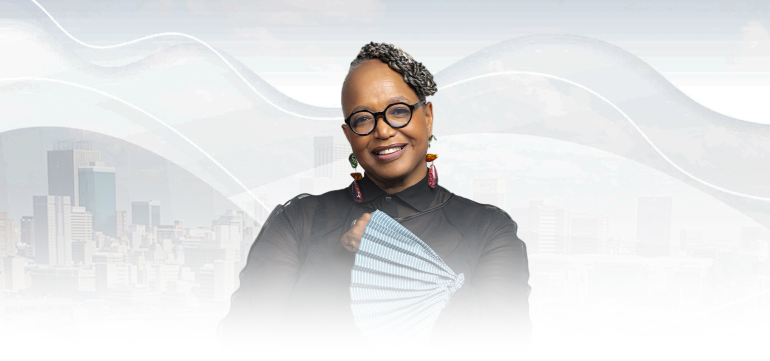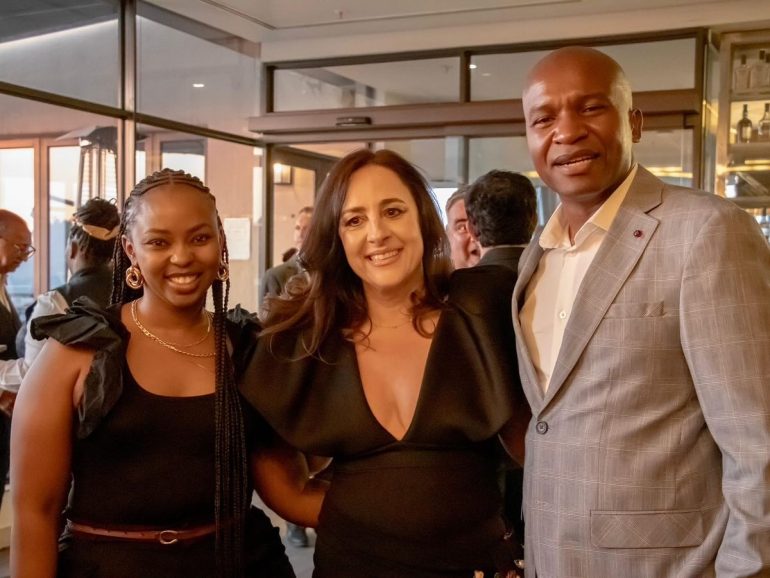- home Home
- keyboard_arrow_right PRESS OFFICE
- keyboard_arrow_right Posts
- keyboard_arrow_rightTo fix South Africa’s dysfunctional state, ditch its colonial heritage
To fix South Africa’s dysfunctional state, ditch its colonial heritage

Paul Saad/Flickr, CC BY-NC-ND
Mashupye Herbert Maserumule, Tshwane University of Technology
South African President Cyril Ramaphosa recently made an astonishing statement: that the country’s governance is collapsing. It takes extraordinary courage for a head of state and of the national executive to be so candid.
Ramaphosa’s statement followed the release of damning data about the state of governance in the country. For example, the most recent report from the Auditor General Kimi Makwetu showed that only 7% of the country’s municipalities are discharging their constitutional mandate. And only 8% were given a clean audit in the last financial year.
Hot on the heels of this report were parliamentary briefings which painted a gloomy picture of the state of public service. Added to this is the fact that a number of state owned enterprises have gained notoriety as conduits for patronage.
Does this suggest that South Africa is at the tipping point? I’m asking the question because an important determinant of a functioning state is its administration. As the British political scientist Andrew Heywood argues:
Political systems can operate without constitutions, assemblies, judiciaries, and even parties, but cannot survive without an executive branch to formulate government policy and ensure that it is implemented.
The administration of the state is key. A political system can be optimised or vitiated by the way in which public affairs are managed. Politics decides a system of government while the administration of the state institutionalises how these objectives are realised. In a democracy this is about enhancing the quality of citizens’ life.
To understand what’s behind the appalling state of governance in South Africa it’s more useful to look at causes, rather than just the problems. I argue the main driver is that South Africa’s democracy has been sacrificed at the altar of neo-liberalism – a system of organising society in which the markets are left unbridled and their principles thrust into various aspects of human life.
The rise of neoliberalism
The collapse of communism in Eastern Europe in the 1980s gave the neo-liberalism arsenal an unfettered edge. It was peddled as the panacea by international financial institutions and liberal scholars. Audaciously, an American political scientist and economist Francis Fukuyama proclaimed in his book The End of History and the Last Man that the market economy and a democratic political system were the only means to achieve sustained growth and development.
The post-apartheid state was created just as these views were becoming more prevalent. This meant that the new state didn’t deconstruct the colonial architecture of its administration.
The African National Congress (ANC) also took over running the state with zero experience behind it.
In other words, the ANC ran into government in 1994 completely unprepared. As a result, it often embraced the colonial apartheid governance model.
The intersection of a neo-liberal approach and a colonial edifice eroded the state’s capacity to fulfil the mission of the liberation struggle. This was about “uplifting the quality of life of all South Africans, especially the poor, the majority of whom are African and female.”
In a neo-liberal framework, the people’s sovereignty is replaced by the market. The public good is commodified. State and the citizens assume a transactional relationship in which citizens are characterised as customers.
New public management
During the 1980s a template began to emerge for state reform along neo-liberal lines. It was called new public management. It remoulded the administration of the state according to private sector principles and practices, which saw the state becoming more service ensurer than service provider.
The approach dominated the 1980s but waned in the 1990s. South Africa embraced it anyway, and used it to frame the post-apartheid model for state administration.
The new public management approach became a staple diet in the education of students of government. They were taught that the performance of the state was the function of the economic value of efficiency, largely derived from privatisation cuts in public expenditure. The key is to maximise output with minimum input costs. It’s not about the “social effectiveness” of the state’s action – enhancing the wellbeing of the citizens.
This approach spawned inequality. Society is stratified along socio-economic lines. The hardest hit are the poor while the business, political and bureaucratic elites rich live lavishly.
As I have argued elsewhere, “democracy in conditions characterised by inequities in socio-economic gains is not sustainable, particularly in South Africa with the history of many decades systematic marginalisation” of other races.
Can governance be fixed?
South Africa’s governance challenge can’t simply be fixed by reorganising the structure of government, such as by reducing the size of the public service. It requires rethinking the ideological edifice that frames it, and daring to decolonise the administration of the state.
To get there, the idea that government should be run like a business has to be jettisoned and the idea that it should be like a democracy embraced. This should be linked to the concept of the public good, where democracy should be given a human face.
Iain McLean, a British professor of politics at Oxford University, offers this conception of the public good:
any good that, if supplied to anybody, is necessarily supplied to everybody, and from whose benefits it is impossible or impracticable to exclude anybody.
![]() So how can this begin to happen in South Africa? As a crucial first step, governance requires new narratives. These must transcend neo-liberal prescriptions and colonial-apartheid entrapment, replacing them with the notion of the public good.
So how can this begin to happen in South Africa? As a crucial first step, governance requires new narratives. These must transcend neo-liberal prescriptions and colonial-apartheid entrapment, replacing them with the notion of the public good.
Mashupye Herbert Maserumule, Professor of Public Affairs, Tshwane University of Technology
This article was originally published on The Conversation. Read the original article.
Written by: Zuko
Similar posts
MORE ARTICLES

In Pictures: Mzansi Celebs serve style and drama at Durban July 2025

Five killed in KZN crash allegedly caused by Polo driver

From Benin to the world: Kidjo makes history as first black African on Hollywood Walk of Fame

Drama, cheating and Surprise guest: RHOD reunion delivers shocking revelations

Why Waterfall Estate’s 99-year lease is practically forever
QUICK LINKS
UpComing Shows

Touch of Soul
With T Bose
Kaya 959 takes back Sundays with A Touch of Soul, the only show bringing you soul and RnB music that touches your mind, body and spirit. The Best T in the City, T-bose takes you back to a time when music was made to last. A Touch of Soul is the perfect wind-down to your weekend. Sundays 14h00 to 18h00.
close
The Jazz Standard
with Brenda Sisane
The Jazz Standard with Brenda Sisane. Sunday's 12:00-15:00.
close
Spade of Hearts
With Xola Dlwati
WITH XOLA DLWATI: SATURDAYS 12:00 -15:00 Spade of Hearts is a fuse of love and soulful sounds, pulling at your heartstrings. Tune in for songs that will take you down memory lane. It is the sound that once dominated your playlist. It airs Sundays 12:00 – 15:00.
close
The World Show
With Nicky B
The World Show is informative, expansive, and largely pan-African. This is a musical journey that bridges generations and genres, travelling across continents and timelines, with in-depth interviews and features. ‘The World Show’ is a four-hour global journey through sound – featuring the freshest tracks from home and afar.
close
959 Music Weekdays
Kaya 959 Hits
Real. Familiar. Memorable. Kaya 959 brings you the music you know and love from our playlist. Uninterrupted. Thursdays 20h00 to 21h00
closeConnect with Kaya 959
DownLoad Our Mobile App
© 2025 Kaya 959 | On The Street On The Air









